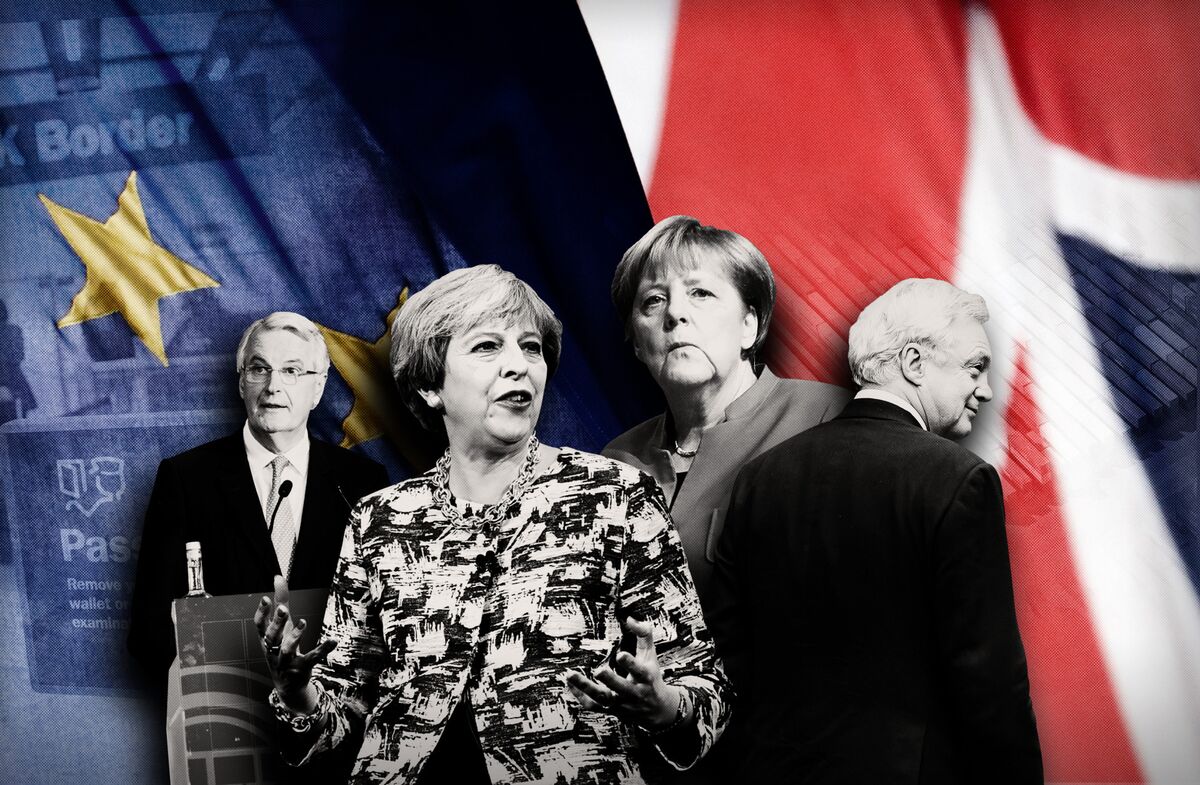
Sign up to receive the Brexit Bulletin in your inbox, and follow @Brexit on Twitter.
Britain has agreed to pay the Brexit divorce bill, clearing one of the biggest hurdles to a deal.
Negotiators have secured an outline agreement, according to a person familiar with the situation, though it still needs to be put to national leaders, Ian Wishart and Nikos Chrysoloras report from Brussels. Those leaders have the final say on whether the improved offer is enough to unblock talks. The offer is expected to be formally presented by Prime Minister Theresa May on Monday when she meets European Commission President Jean-Claude Juncker in Brussels for lunch. has agreed to assume liabilities of as much as €100 billion (£87 billion; $119 billion), although net payments could amount to less than half of that and be spread out over many years, the Financial Times reports. European officials have long said that any final figure will be camouflaged to help the U. government sell the unpopular settlement to voters.
Seventeen months after Britain voted to leave the EU, and with just 16 months to go until it leaves the bloc, the agreement on the bill helps clear the way for the two sides to start discussing the future. One more hurdle remains though, and it’s a more complex one: how to avoid a hard border on the island of Ireland after Brexit, at which point it will become the U.’s new land border with the EU.
May has until Monday to come up with a solution that satisfies both Dublin and the DUP, the Northern Irish party that props up her government in London. Only if she does that will EU leaders agree at a summit on Dec. 14 that talks can move on to the future trading relationship and the crucial two-year transition arrangement that businesses are clamoring for.
Irish Foreign Minister Simon Coveney said late Tuesday that U. and EU teams are discussing possible wording of a commitment on the border issue that would allow talks to move forward.
Brexit Latest
Killing the Car Industry | The U.’s auto industry body issued a stark warning, saying that introducing friction to trade with the EU could undo decades of work spent honing world-class manufacturing. “Competitiveness comes hard won; it can be easily lost,” Society of Motor Manufacturers and Traders President Tony Walker said at the lobby group’s annual dinner Tuesday. “A hard Brexit would undermine all that we have collectively achieved.”
Polish Pitch | Poland’s leaders have been eyeing the thousands of finance jobs that might leave London, expecting banks to embrace their country for its eager young workforce, inexpensive office space, and fast-growing economy. Now Poland is adding a less welcoming element to the pitch: higher taxes for many of the people who might fill jobs imported from the U.
Secret Papers | The saga continues: Brexit Secretary David Davis has been summoned by U. lawmakers who are fighting to make him publish a series of secret papers on the economic impact of Brexit. Davis tried to calm the row by giving all lawmakers access to the 800-page document, which assesses how Britain’s exit from the EU will affect 58 sectors of the economy. But the document has been heavily redacted, as the government argues some of the information is commercially sensitive and may disadvantage the U. in its negotiations. Lawmakers from both sides of the Commons were unimpressed.
Labour Position | The muddle over what the Labour Party wants from Brexit isn’t getting any clearer. Diane Abbott, the shadow home secretary, wrote to tell constituents that she would back a referendum on the final Brexit outcome, a policy that’s been ruled out by her party, the Guardian reports. Challenged on the comments, Abbott said her letter was “poorly worded.”
Health Risk | The EU and the U. should take concrete steps to minimize the risk of Brexit disruptions to their health systems, the European pharmaceutical industry said. Negotiators must secure ongoing regulatory cooperation, according to the European Federation of Pharmaceutical Industries and Associations, whose members include Merck & Co. and Bayer AG. “Currently, with the uncertainty of the negotiations as we have them, we’re leaving patients scratching their heads, hoping that somebody has a plan in place,” Virginia Acha, a member of the group’s Taskforce on Brexit, told a hearing at the European Parliament.
On the Markets | While markets are pricing in the negative impact of Brexit, they aren’t factoring in a collapse in the Brexit talks or the risk of a Labour win in any new election, according to Scotiabank. The pound rose as much as 0.5 percent on Tuesday after news of the agreement on the bill and was up 0.2 percent in early trading on Wednesday at $1.
British tabloid newspapers – the most fearsome critics of any concessions to Brussels – largely ignored news of the divorce bill on Wednesday. Weddings trump divorces and Prince Harry’s engagement to Meghan Markle continues to give Theresa May’s government some much-needed cover. It was left to arch-Brexiter Nigel Farage, writing in the Telegraph and broadcasting on LBC Radio, to complain about May’s “sell-out.”
For more on Brexit follow Bloomberg on Twitter, Facebook and Instagram.


0 comments:
Post a Comment